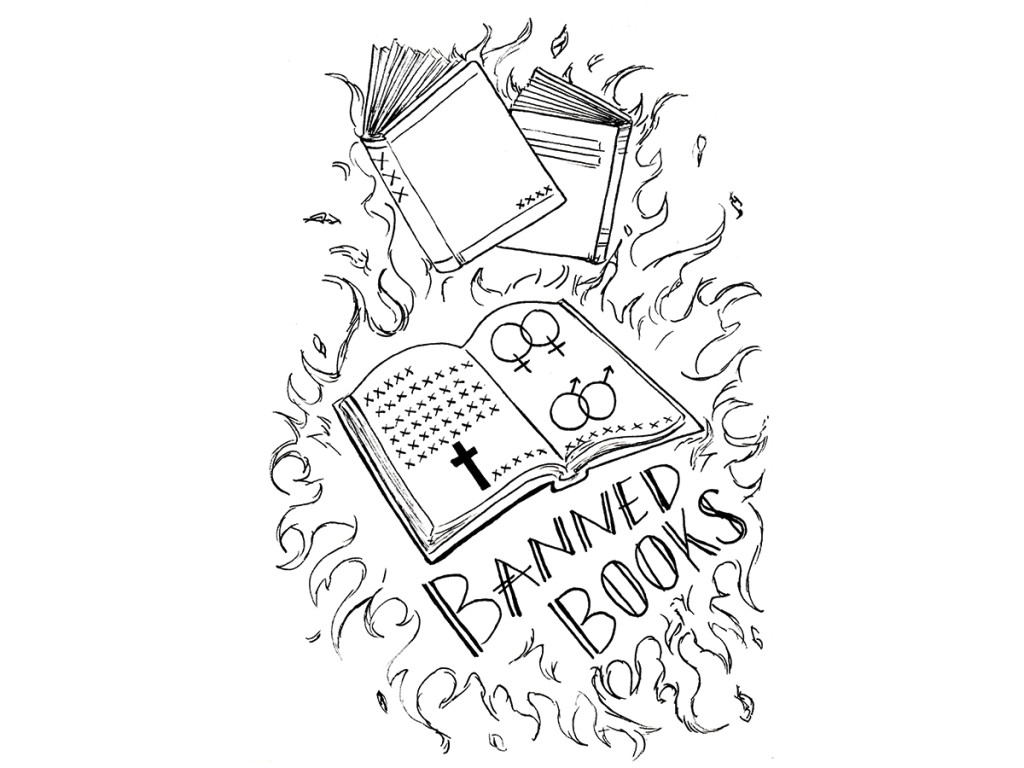
“I believe that books challenge and interrogate. They give us windows into the lives of others and give us mirrors so that we can better see ourselves. Ultimately if you have a worldview that can be undone by a novel, let me submit that the problem is not with the novel,” states bestselling author John Green in his latest YouTube video, “On the Banning of Looking for Alaska.” His response comes right after the American Library Association (ALA) released its list of the most banned or challenged books of 2015 with Green’s award-winning novel, “Looking for Alaska,” topping off the list at number one.
But why do certain groups and organizations, especially public schools, decide to ban certain books from their libraries? According to the ALA, books are banned or challenged in order to protect others from “difficult ideas and information.” Some more specific reasons are that parents find these books inappropriate for containing anti-family views, homosexuality, offensive language and sexually explicit scenes or descriptions.
Often the organizations or schools that ban these books fail to see the book as a whole; they often center on the one page, the one scene or even the one word containing the offensive language or meaning and judge the whole book based on that one aspect.
It’s absolutely ludicrous that public schools would deprive students of their right to a well-rounded education based on such a minute factor. By caving into the desire of a small group of people, schools fail to do their job of providing their students with a wider understanding of the world they live in. Schools are encouraging students to think small and that everything is peachy keen; that there is no such thing as gender and sexual inequality or that ethnic minorities aren’t being shot and killed frequently by law enforcement officers. These are the kinds of realities being covered up by banning books.
Creativity and efficacy in our growing society are impeded by this censorship. The U.S. and its students rely on educational institutions to carry on the notion of progress and improvement by cultivating a robust view of the world. By censoring novels, schools define how society wants its future citizens to shape the world and that this regulation is a good thing.
Censorship in middle schools, high schools and colleges also seems unnecessary because students are going to experiment and explore their individuality and the world around them regardless of what their parents or schools believe. It’s a natural and innate human trait to be inquisitive and one cannot ignore or run away from that curiosity. Students then act on that curiosity and as a result learn from experience, which can then be used in different situations.
Books that offer a different worldview add to our understanding of social diversity in our communities and allows us to be a progressive society by thinking about the overall well-being of the community. These books challenge and counteract an existing and often constricted worldview that is confined to only the predominant and constricted viewpoint.
Books being banned is not the problem in schools; rather the problem is the small view of the world that fails when it is challenged by a new perspective on the world. To resort to an archaic and inefficient solution to a nonexistent problem is a waste of time and administrative resources because kids are going to do what they want regardless of their parents’ or school administrators’ expectations. If students decide on a different path than what was carved out for them, then it’s because their curiosity is being smothered and they’re feeling trapped underneath the intention to conform to others’ expectations.
Maybe these people should open up a book and enlighten themselves and realize that they are part of a cycle that perpetuates intolerance, inequality and violence. We would not be a functioning and progressive society without books that offer a different view of the world, that allow the reader to be part of the story and experience through imagery and diction a different setting than one’s own.








